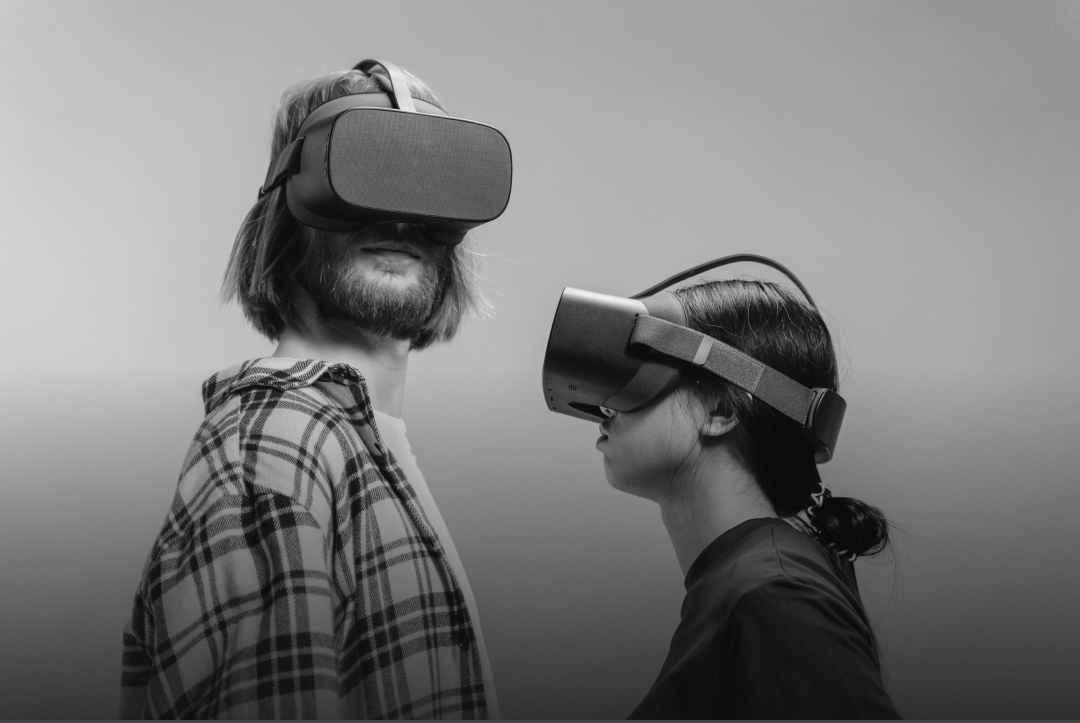

Mental health conditions that hinder people from living fulfilling lives have taken center stage, claiming a leading role as one of the most prevalent issues affecting us globally.
Brace yourselves for some jaw-dropping numbers: we’re talking $16 trillion in economic losses by 2030, and trust me, that’s not monopoly money. It’s the real deal. The kind of cash that could buy you a small country.
Or at least a really impressive yacht.
Now, before you start imagining the apocalypse, here’s where the plot twist happens. Just when we thought our mental health was about to steal the show, here comes the hero – digital health technology.
Let me walk you through the scene.
Let’s initiate the investigation by examining the fundamental aspects: What are the main trends in app development concerning mental health? These trends are currently evolving, providing you with the opportunity to join the movement with your innovative ideas or to explore the trends firsthand.
1. Skill Training/Habit Building – These apps assist individuals in learning new coping or thinking skills. They are enriched with educational content and typically include tracking features.
2. Improving Cognitive Remediation – These apps are often designed for individuals with serious mental illnesses who may require assistance with cognitive remediation.
3. Self-Management – These apps enable users to input information for feedback and progress monitoring.
4. Passive Symptom Tracking – Symptom tracking apps gather data using the sensors integrated into smartphones. These sensors might record movement patterns, social interactions (such as the number of texts and phone calls), behavior at different times of the day, vocal tone and speed, and more.
If you’re familiar with the popular drama series Breaking Bad, then you might have an idea of how technology can be used for both good and bad. Fortunately, mental health tech has taken a positive turn, and here are the top 4 trends we’ve seen in recent times:
1. AI-powered Chatbots – As I covered in my previous blog post, AI has the potential to create a safe space for people to open up without fear of judgment. However, the road can get a bit bumpy. There was an incident involving an eating disorder chatbot that took a wrong turn, offering diet and weight loss tips. This kind of advice can be triggering and harmful for those struggling with eating disorders.
2. Virtual Reality Therapy – Yes, you’ve read that right. Virtual reality therapy is a new and innovative approach that immerses patients in virtual scenarios to help them overcome their fears, phobias, and other mental issues safely. Patients can take part in various exercises from the comfort of their homes while also connecting them to a therapist in real-time. Would you try it out?
3. Mood Tracking – Mood tracking apps are a great way to monitor your emotions, mental status, and well-being. These apps can help identify patterns leading to mental health issues, allowing for early intervention and treatment. Sensa by Kilo Health has a mood-tracking feature that is appreciated by users.
4. Mindfulness Platforms – Mindfulness platforms provide individuals with access to meditation, stress-relieving activities and exercises, and mindful breathing techniques that promote physical and emotional well-being.
Now, I promised you a Sherlockian investigation, didn’t I?
There is no denying that we are constantly on the run – to work, to home, to catch that movie in theaters, or to meet up with a long-distance friend who’s in town just for the weekend.
In the midst of this whirlwind, we often fail to truly observe our surroundings; our focus is solely on reaching our destination. In doing so, we risk missing out on the beauty of a meteor shower, the delicate bloom of a new flower in our garden, the growth of our loved ones, and the weird formations of clouds passing by.
Some may call this hustle culture. We all want to reach something big.
However, studies show that hustle culture, for instance, can cause psychological distress, and more self-compassion is needed in order to fight it.
Now for the mindfulness platforms, researchers reviewed more than 200 studies of mindfulness among healthy people and found mindfulness-based therapy was especially effective for reducing stress, anxiety, and depression. Mindfulness can also help treat people with specific problems, including depression, pain, smoking, and addiction.
In a world where hustle and bustle seem to be the norm, the rise of mindfulness platforms is like a breath of fresh air. These platforms are like treasure troves of techniques and exercises designed to tame the chaos within, helping us forge a path to a calmer, more centered existence.
With their user-friendly interfaces and widespread accessibility, these platforms have the power to touch people globally.
Even I am considering giving Sensa a try as I’m writing this.
Now, I’m no witch (and trust me, if I were, I’d be really happy it’s not the 1692s anymore), but I’ve got a strong hunch that the realm of mental health tech holds boundless potential for the future.
Happiness? Vital. Inner calm? Vital. Nurturing healthy relationships? You bet that’s vital too.
But you know what else is crucial? Not having to jump through fiery hoops, shatter impenetrable walls, or scale mountains just to access the help you deserve. This is, I believe, one of the things that digital health is going for.
“I believe that in a world, which is so well connected, opportunities to provide easily accessible and simple solutions to sleep problems, pain, and stress to people cannot be missed. Sometimes it’s not the most original idea that makes a product successful, but meeting the needs of people,” says Vitalijus Majorovas, the co-founder of Pulsetto.
As the National Institutes of Health suggests, in the future, apps might have the capability to analyze this data to ascertain a person’s real-time state of mind. These apps could also detect shifts in behavioral patterns that serve as early indicators of potential episodes of mania, depression, or psychosis.
This is a scenario where the phrase “life-saver” could be used quite literally. And I genuinely hope it becomes a reality. Perhaps you’re open to taking on the challenge of future mental health tech? You might find our co-found program intriguing – a chance to contribute to revolutionary digital health products that could change the world.
For the moment, keep your zen, stay chill, and hold onto your sanity. See you in my next one!

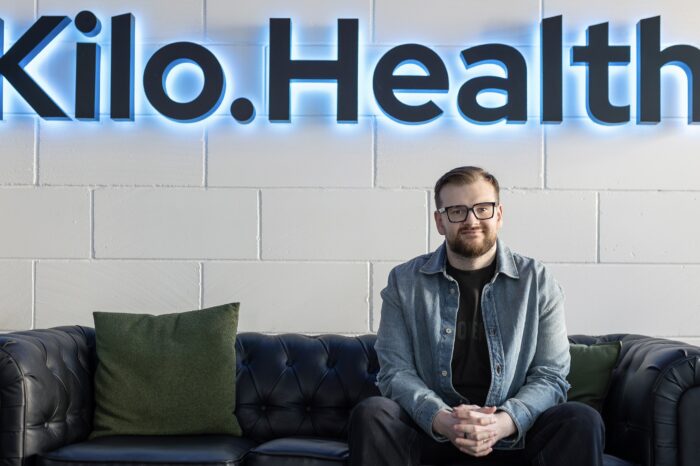
Kilo Health concluded 2024 on a strong note, achieving stable revenues and growth, alongside a team of 450 employees. In 2024, the company’s consolidated revenue remained steady at €234 million, the same as in 2023. Despite external market challenges, Kilo…
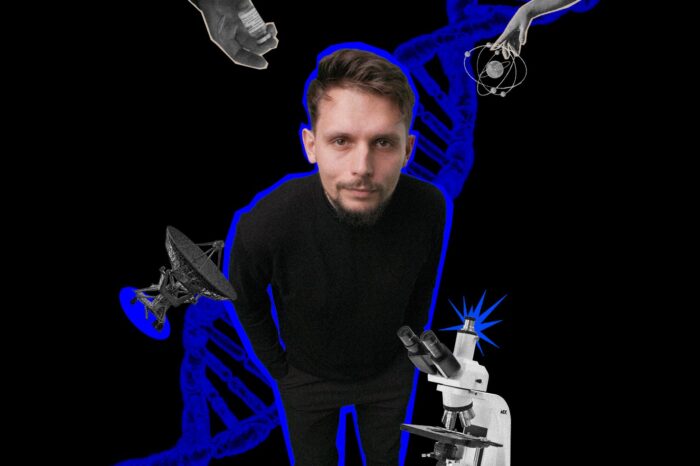
Ask, research, support. These three words sum up my role — or maybe just the nerd face emoji. Currently, I am working as a Scientific Research Lead at Kilo Health. But before that, I’ve always been on a similar path,…
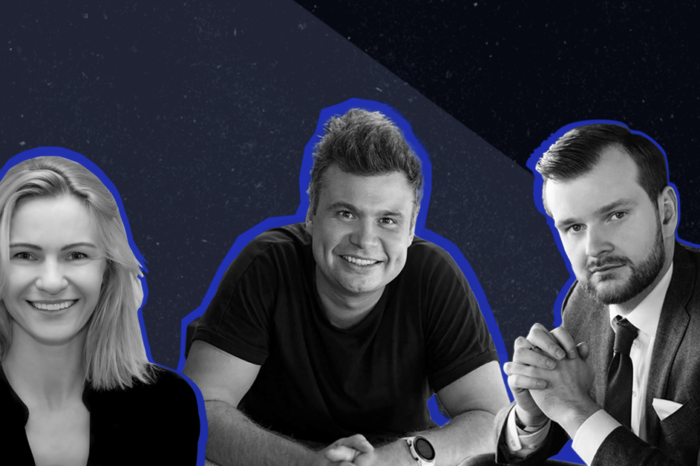
As we’re entering an exciting new chapter of business growth and leadership, it’s the perfect time to catch up on the latest changes in our team and where we’re headed next. Dive in and get to know our new CEO…

I’m Matas, and when asked, I refer to myself as an intern — always learning. However, research, strategy, business development, and idea generation are the cornerstones of my work. I want to pull back the curtain and give you an…
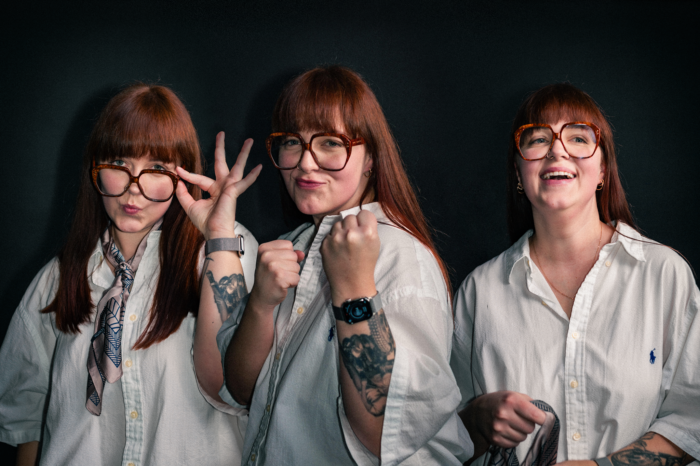
I’m Deimante, currently Head of Marketing at Kilo Health, and a big lover of this company. My journey to being hired at Kilo has been quite the ride. How it all started? I underwent interviews with 11 different people and…

Ever dreamt of taking the lead, even if the path isn’t crystal clear? Or to have someone believe in you and offer you a chance to figure out whether you would thrive in a startup environment? Speaking of which, Kilo…
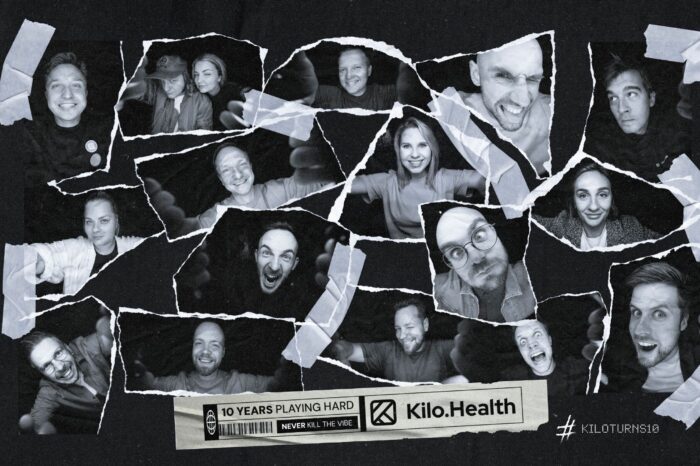
A whole decade has raced by in the blink of an eye for us at Kilo Health, and what better way to celebrate than to reflect on the milestones and lessons over the years? Do you know where we started?…
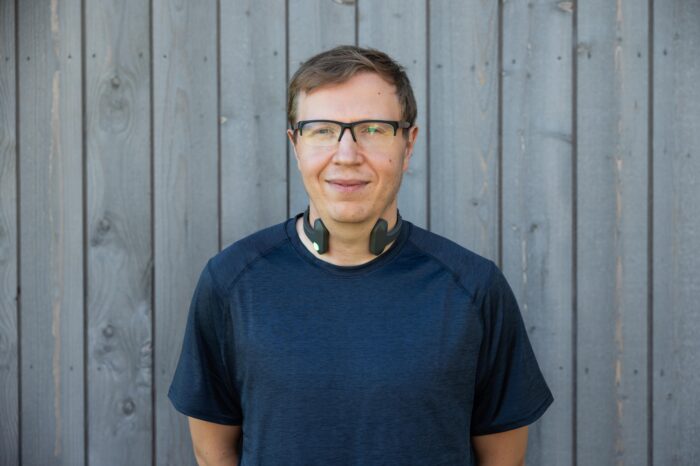
We, the co-founders, are just ordinary individuals with grand ambitions. There are times when we work twice as long and intensely as others, yet we’re equipped with the same amount of daytime, energy, and capacity. However, as leaders in the…

There’s no enchanting tale behind how I became a part of Kilo Health. In truth, some of us regular folks simply have regular journeys, and that’s perfectly fine. What counts is that today, I hold a successful product in my…

Reflecting on your achievements from the previous year is advantageous. That’s exactly what we did, proudly demonstrating our boundless aspirations through an impressive 84% growth and 213 million euros. So let’s put our hands in the air and celebrate together,…
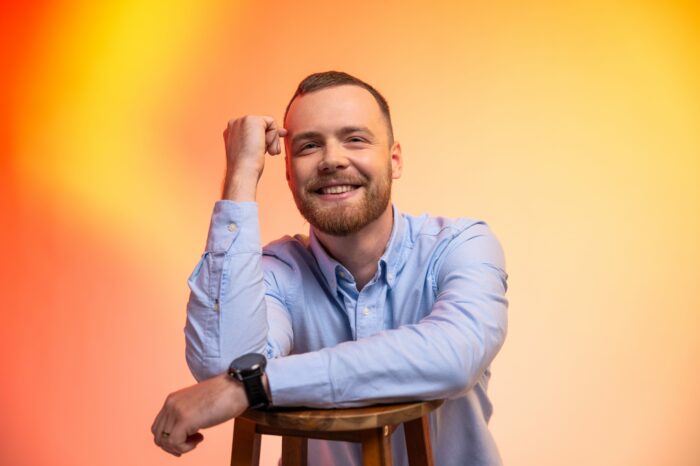
I joined Kilo Health back in 2019, and I can prove that when people’s values and mindsets align, great things can be accomplished, even if you don’t have a plan. BoomeranGO!, the first and only product for children provided by…
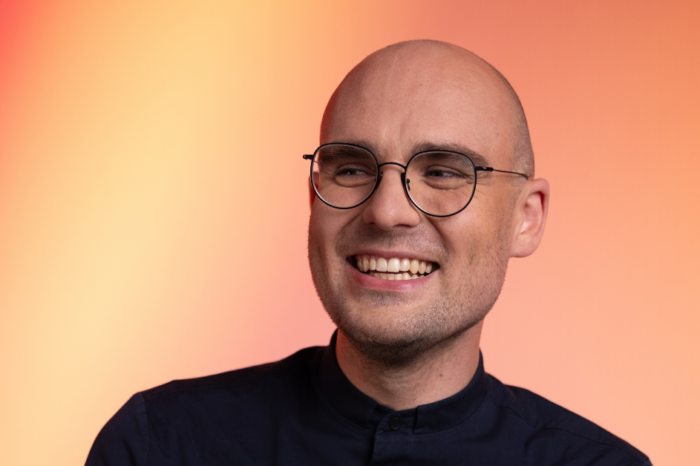
Lighting, sound, set, and actors are essential components of a film studio, but they are not the sole factors that define its success. Consistent creativity, appreciation of talent, and adaptability to market trends are a few of the things that…
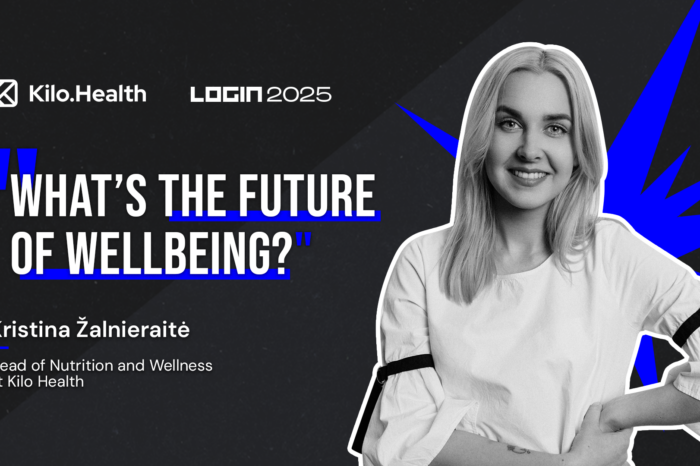
Imagine a world where technology creates a tailor-made meal plan and recommendations after analyzing different data about you. This is not science fiction but a reality that is fast approaching. Traditional plans drawn up by nutritionists are already being replaced…

Hey, I’m glad you’re here — I’m Viktorija Jokantaite-Kutke, the CEO of the Weight Management Accelerator at Kilo Health. One thing about me is that I don’t do boredom. I am always moving, always building. Try to keep up! When…